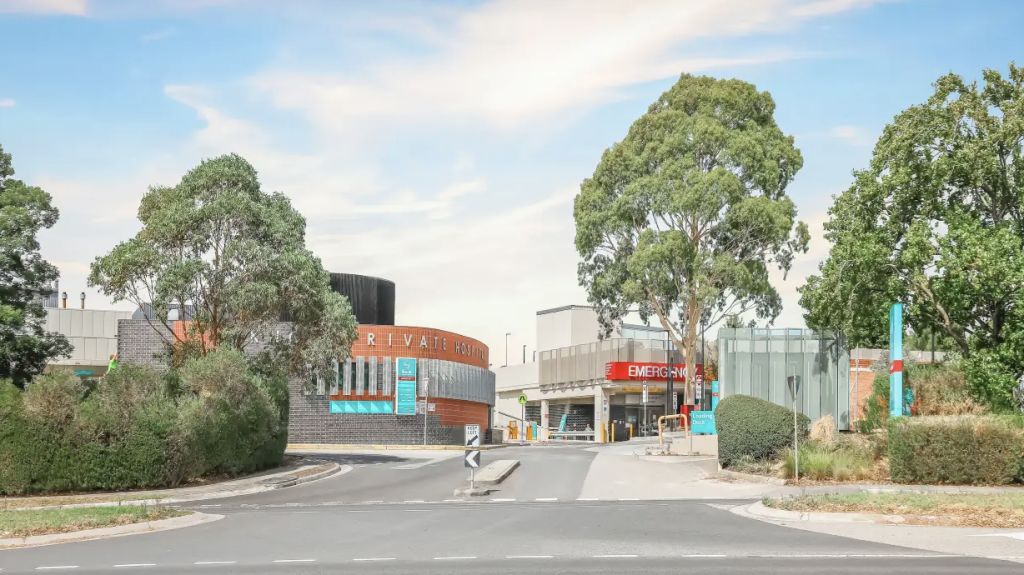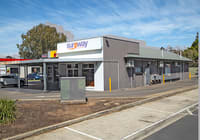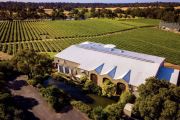
Private hospitals in a real estate class of their own: HMC Capital
HMC Capital chief executive David Di Pilla says private hospitals are not exposed to the headwinds hitting other real estate asset classes as he flagged further acquisitions in the healthcare sector after snapping up 11 Healthscope facilities for $1.2 billion.
While office tower owners brace for asset value writedowns of as much as 20 per cent amid high vacancy rates and rising debt costs Mr Di Pilla told The Australian Financial Review the “underlying structural demand” for private hospitals and other healthcare real estate was “compelling”.
“Private hospitals will outperform in all circumstances. These are not malls or office space, but part of a sector with structural tailwinds behind it.” he said.
These tailwinds include Australia’s growing and ageing population, escalating hospital visits among older patients and the increased take-up of private health insurance.
“The private hospital space is where infrastructure and real estate overlap. So, it has a lot of the characteristics of infrastructure.” Mr Di Pilla said.
Adding further to healthcare property’s lustre, is the appetite among institutional and retail investors for exposure to the sector, something HMC Capital has capitalised on at a time when other REITs have been unable to raise fresh equity and have instead been selling assets to improve their balance sheets.
HMC Capital’s $1.2 billion real estate deal that will be backed by almost $600 million of fresh equity and supported by its lenders, Westpac and ANZ, through an increased debt facility.
The hefty capital raising includes a fully underwritten and – the Financial Review understands oversubscribed – $320 million equity raising that will fund the initial acquisition of four of the private hospitals by its listed HealthCo Healthcare & Wellness REIT including The Northpark Private Hospital, The Victorian Rehab Centre and Pine Rivers Private Hospital.
In addition, Mr Di Pilla said five institutional funds were in due diligence to become an investor – through a $259 million raising – in the new $2 billion unlisted healthcare and life sciences fund, which will acquire the remaining seven assets in two tranches.
Ownership of these seven assets, which include Knox Private Hospital, Campbelltown Private and Sydney Southwest Hospital will be split between HCW and the institutional investor through 50 per cent stakes in the unlisted fund.
The Medical Properties Trust deal lifts HMC Capital’s total assets under management to $7.5 billion and puts it on track to hit its $10 billion assets under management target by the end of the calendar year – 12 months earlier than first forecast.
Included in that portfolio is $4.7 billion of convenience malls owned by the ASX-listed HomeCo Daily Needs REIT, a trust spun out of the original Home Consortium business that was created through the acquisition of the former Masters portfolio in 2016.
“We remain very confident that we can reach $10 billion by the end of the year,” Mr Di Pilla said.
The acquisition of another $2.5 billion of assets before year-end will come through investments in last mile logistics, healthcare (including potentially further deals with Healthscope owner Brookfield) and through expansion of its private equity business, he said.
Investors in the HCW equity raising will gain exposure to what will be the country’s largest diversified healthcare REIT. Once settlement of all 11 hospitals is finalised by September, the trust will hold a $1.5 billion portfolio with a weighted average lease expiry of more than 16 years.
The acquisition of the Healthscope hospitals was struck on a net yield of 5.8 per cent and is forecast to deliver total returns of more than 9 per cent.
HMC Capital’s swoop on the Healthscope hospitals comes amid an increasing corporatisation of what was once a niche real estate sector. Under bidders on the MPT-owned Healthscope portfolio included ASX-listed heavyweight Dexus and Canada’s Northwest Healthcare Properties.
Northwest and MPF split the original 22-strong hospital portfolio when Brookfield sold them for $2.5 billion in early 2019 in a sale-and-leaseback deal.
Since then, fund manager Real Asset Management has listed its RAM Essential Services Property Fund, of which almost half the $800 million portfolio are medical assets including private hospitals.
Others will big healthcare funds include Dexus, Centuria, Barwon Investment Partners and Australian Unity.
A report by JLL last year forecast the total value of the private hospital real estate sector to hit $41 billion by 2041 – a rise of 63 per cent in less than 20 years – on the back of investment in new facilities to cater for the medical needs of an ageing population and a rise in the take-up of private health insurance by younger Australians.
“Development of new assets will be a key strategy for fund managers, and those who have existing relationships with major hospital operators will have a significant advantage,” said JLL’s head of alternative investments in Australia, Noral Wild.
Regarding the Healthscope portfolio Mr Di Pilla said it offered “monopoly-like characteristics” driven by underlying demand for hospital beds and places.
In addition, long-term rental income is locked with one major tenant, rather than with the many tenants that occupy a mall or office building.
Mr Di Pilla said this reduced risk for the landlord, while the net lease terms struck with Brookfield mean HMC Capital’s listed and unlisted funds do not have to cover any operating costs associated with these properties.
In exchange for a lower base rent and other incentives, Brookfield has also agreed to CPI-linked annual rental increases capped at 4 per cent rather than a fixed 2.5 per cent annual increase.
Looking more broadly at the outlook for real estate investment trusts, Mr Di Pilla said those holding assets supported by underlying income growth and structural tailwinds were well-placed to navigate the challenges as interest rates and inflation peak.
Those with assets not supported by income growth and facing headwinds – such as the office sector – were not well-placed, he said.











